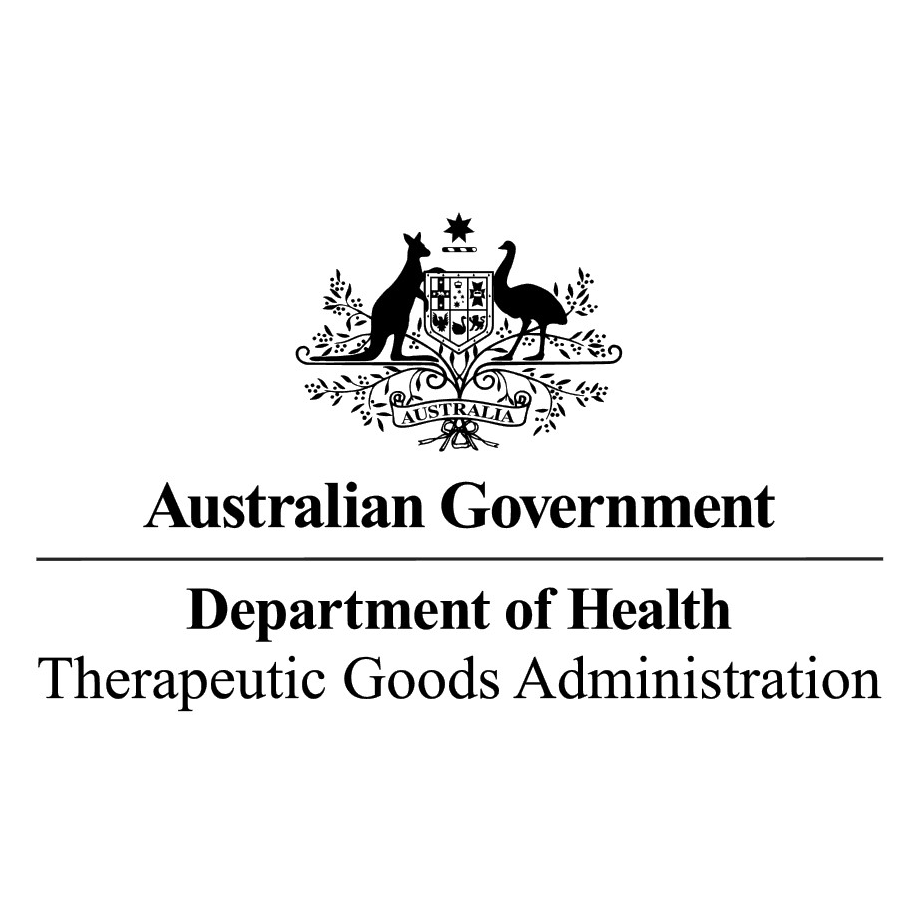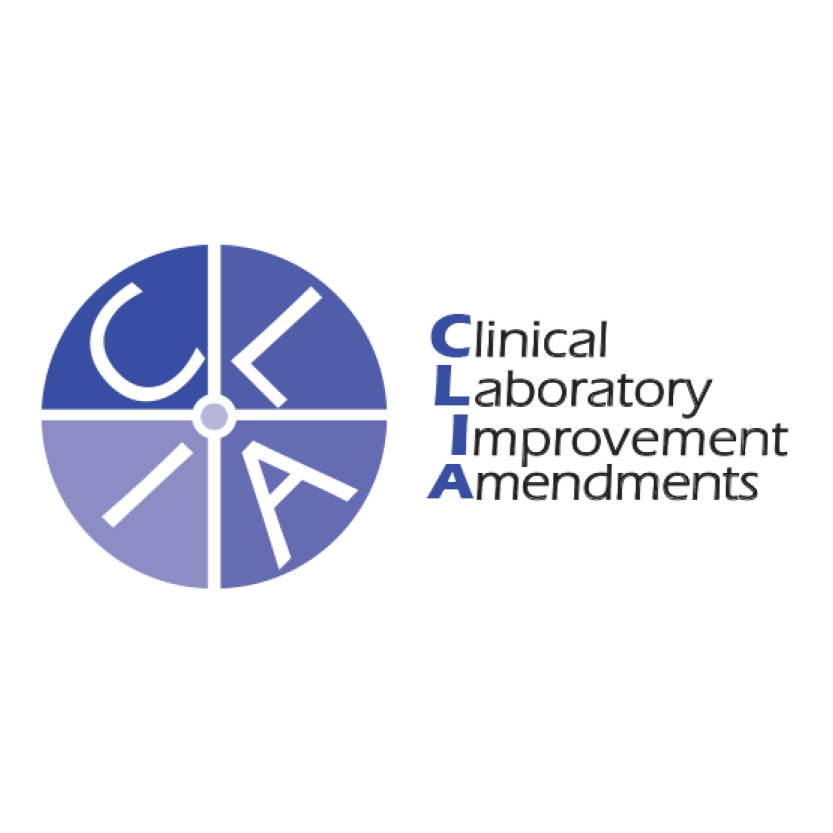PGx Test Purpose
Pharmacogenomic (PGx) testing identifies genetic variants that affect a patient’s response to specific medications. Doctors can use this information to personalise medication regimens, predicting normal responses, poor responses, or increased risk of side effects before prescribing.
This proactive approach helps avoid unwanted side effects, enhances medication safety, and optimizes therapeutic outcomes. PGx guidance provides valuable supplementary clinical information, enabling doctors to anticipate and manage potential medication-related issues, and make informed prescribing decisions.
Who may benefit from PGx Testing
The myDNA PGx Medication tests are beneficial for any patient initiating medication with clinically actionable gene-drug interactions.
Particularly advantageous for patients experiencing adverse effects or poor responses to specific medications.
PGx results are relevant throughout a patient’s lifetime and may apply to future prescriptions.
Genes Covered
The myDNA PGx panel is comprised of 11 genes that are relevant across various therapeutic areas including cardiology, gastroenterology, pain management, and psychiatry.
CYP2D6, CYP2C19, CYP2C9, CYP1A2, CYP3A4, CYP3A5, VKORC1, ABCG2, CYP2B6, OPRM1, SLCO1B1
Tests Avaliable
Mental Health Medication Test Kit
Covers Mental Health medications under the psychiatry category.
$149.00
Multiple Category Medication Test Kit
Covers multiple medication categories, including: psychiatry, pain, gastrointestinal, cardiovascular medications + more.
$198.00
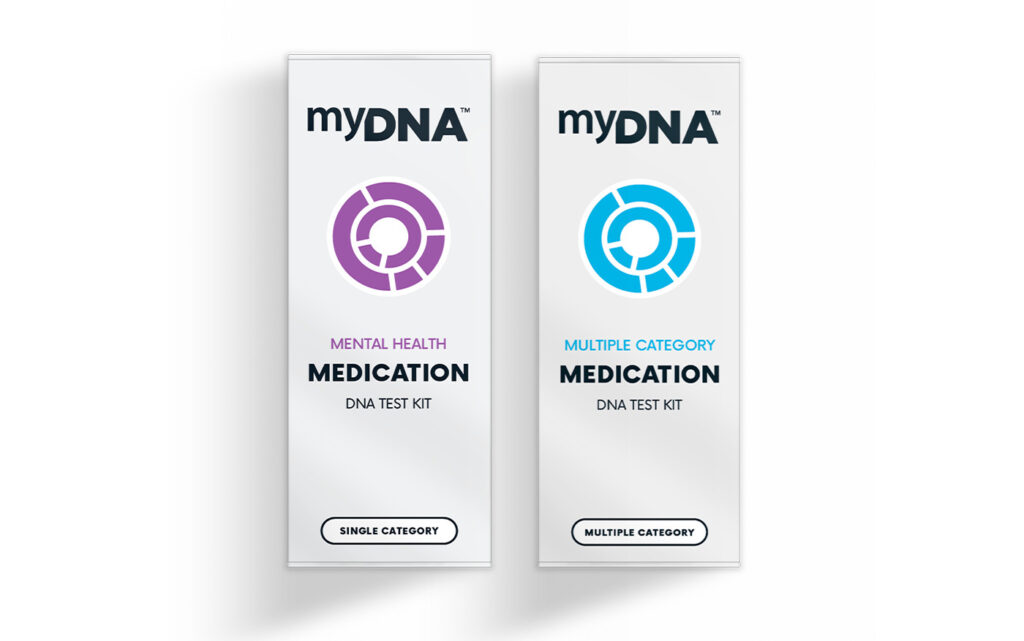
The myDNA Medications Report
The myDNA PGx Medication report details the patient’s unique pharmacogenomic results, offering specific interpretation and prescribing considerations relating to medication and dosage selection that are informed by current evidence-based guidelines established by expert Consortia such as The Clinical Pharmacogenetics Implementation Consortium (CPIC) and The Dutch Pharmacogenetics Working Group (DPWG) as well as regulatory bodies including the TGA and FDA.
Ordering the test
Buccal Kit
Step 1
Download and complete the myDNA PGx Medication test request form from the myDNA website.
Step 2
Select your preferred test.
Step 3
Your patient can simply purchase a kit by scanning the QR code on the request form. The kit includes a buccal swab and the test can be undertaken at home.
Step 4
Once your patients has ordered the kit and receive their kit via post, they will nominate you as their doctor when registering their test online.
Step 5
Patients complete the simple cheek swab at home, send the swab back to the myDNA lab, via the enclosed reply-paid envelope, for analysis.
Step 6
Results are released to you as the patient’s nominated doctor.
Step 7
Your patient is informed via email to schedule a consultation with you as the nominated doctor to discuss their results.
Blood Test
Step 1
Request “myDNA PGx test” through our Pathology Partners using a standard Healius pathology ACL or 4Cyte request form. (Healius Pathology brands include Laverty Pathology, Dorevitch Pathology, QML Pathology, Western Pathology, Abbott Pathology and TML Pathology.)
Step 2
Send your patient to any Healius Pathology or ACL collection center in Australia wide or 4Cyte collection centers, VIC/NSW/OLD only.
Medibank members with Mental Health Support included on their cover may be eligible for a rebate towards pharmacogenetic testing for all conditions.
To find out more on how to claim, please visit How to claim – Pharmacogenetic testing.
Turnaround Time:
Our Melbourne-based NATA accredited laboratory provides results within 7-10 working days from sample receipt.
Result Delivery Method:
Results are securely delivered through a portal or via encrypted email for immediate access.
Clinical Team
The myDNA Clinical team consists of qualified clinical geneticists, pharmacists and pharmacologists who are available to discuss specific patient results.
Simply call us on 1300 436 373 or
email us on help@mydna.life.
Printable Resources
To support the conversation with your patient we have a Doctor’s Overview, Patient Information and a Substrate Card covering all the medications that we provide results for. These documents can be used for your reference.
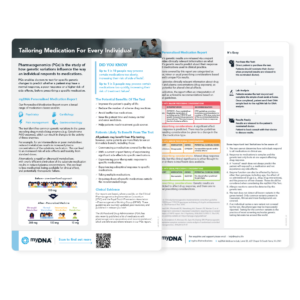
Doctor’s Overview
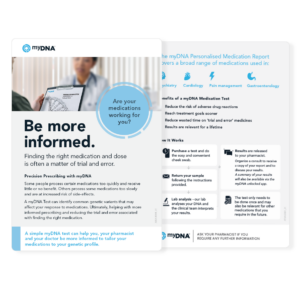
Patient Education
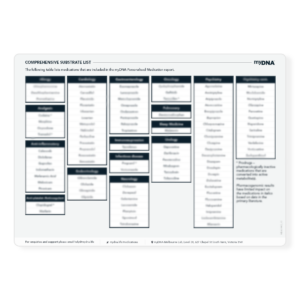
Substrate Card
Please contact our customer service team for access to our training resources.
Request Sample Report
Registered doctors can request a sample myDNA Medications Report.
Evidence behind pharmacogenomic testing
We reference the guidelines of the Royal Dutch Pharmacists Association, Pharmacogenetics Pharmacogenomics Working Group & the Clinical Pharmacogenetics Implementation Consortium (CPIC), which have been most recently published.
The following publications contain significant evidence for gene-drug associations of which dosage adjustments have been recommended.
- CPIC Guideline for CYP2D6 and CYP2C19 genotypes and dosing of Tricyclic Antidepressants
- CPIC Guideline for CYP2D6 and CYP2C19 genotypes and dosing of Selective Serotonin Reuptake Inhibitors (SSRIs)
- Dutch Pharmacogenetics Working Group guidelines which include a number of antidepressant and antipsychotic medications
Our scientific partner network
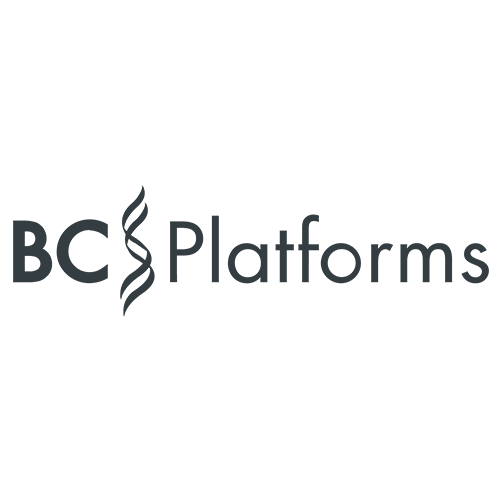


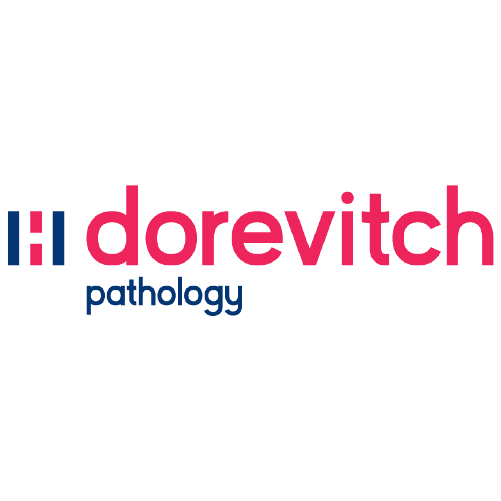
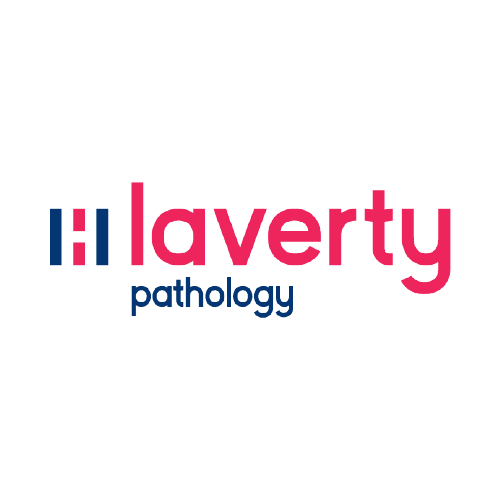
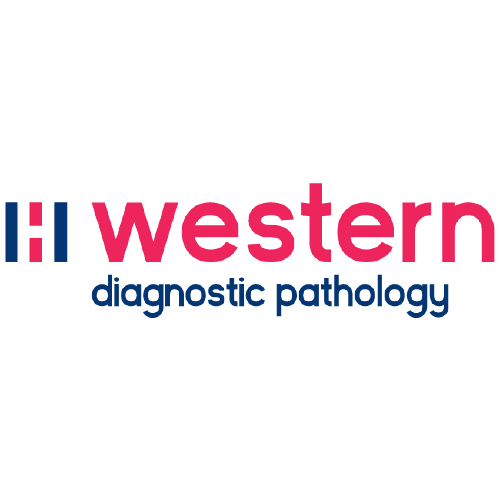


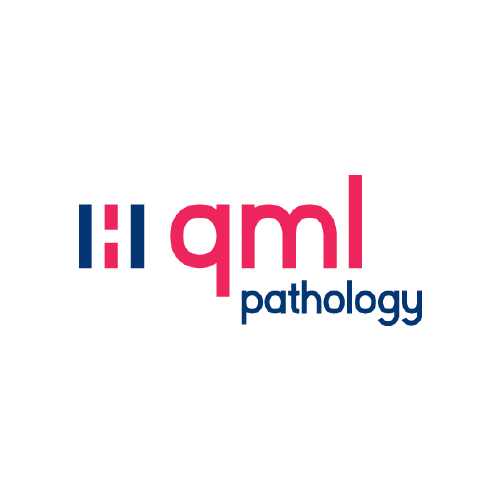
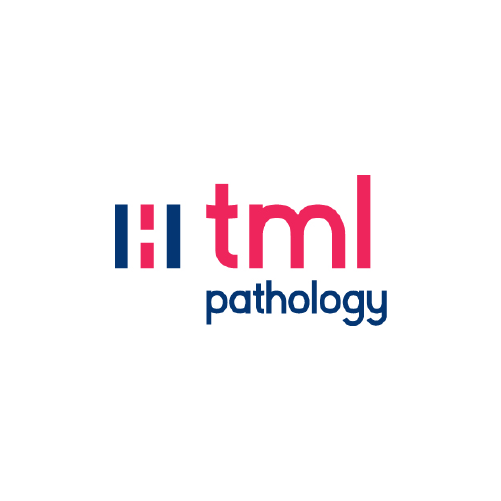
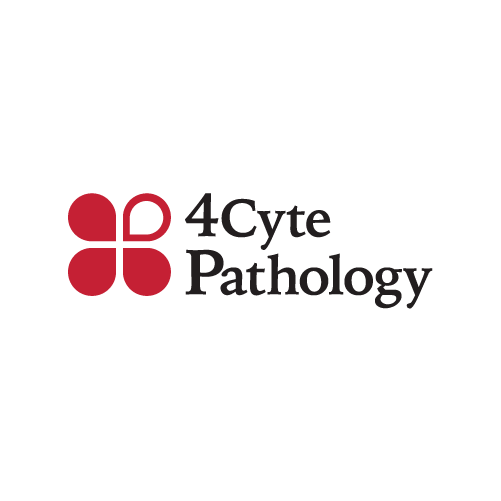



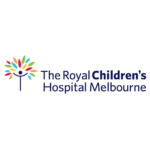

Trusted accreditation on a global scale
Patient Privacy and Security
All DNA remains the property of the patient. DNA samples are de-identified upon arrival at our laboratory to ensure all DNA remains anonymous, and our DNA analysis technique cannot be used to identify individuals or their relatives. myDNA will never share any patient data with third parties without written consent and uses secure encrypted servers to protect it.


